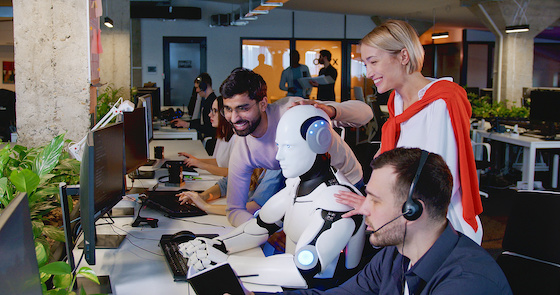Automation is taking over many jobs in manufacturing, partly just because it can and partly because of the severe shortage of workers in the industry. Automation in agriculture and hospitality is still more aspirational than real, but AI is bringing it closer to reality as labor shortages in these fields increase the demand for automation. Generative AI like Chat GPT threatens actors, accountants, and managers as well as clerical workers in every field. The question now: what do employers owe their human workforce when AI takes over their jobs?
Fair warning
NPR reports that hospitality workers in Las Vegas are demanding six months’ warning of new technology along with free training to help them use the new machines. Workers interviewed for the article assured NPR that they didn’t think their jobs were really in jeopardy. People want human contact along with their drinks, a cocktail waitress claimed. Machines can’t replace human beings when it comes to human interaction.
The WARN Act of 2101 mandates 60 days of notice in cases of mass layoffs, but the numbers are large. Only companies with 100 or more employees are covered, and only when they lay off 50 or more workers at once, not counting those who work fewer than 20 hours a week or who have been in their positions for six months or less. Some states have stricter parameters, but many companies will not reach the thresholds for these laws when they automate a department or replace their clerical staff with one AI manager.
The fact is, unless the requirements are in workers’ contracts, most will not have any protection at this point.
What regulation should be in place?
Some employers will fight against any regulation. After all, if automation can cut costs without harming productivity and customer satisfaction, what employer would not choose to make that change? If your factory can drop six welders and three data clerks, should anyone be able to tell you that you can’t?
Employers who are concerned about their employees (or their reputations) will probably try to move employees who are made redundant into other jobs, perhaps in different locations. Good workers might expect to be able to receive retraining and stay on in some capacity.
At this point, it’s hard to see how the coming transition can be accomplished without some displacement. Workers might be wise to go ahead and do some retraining on their own before new automation reachers their facilities.
Meanwhile, when you need service and support for Indramat control systems, we’re the first people you should call.



